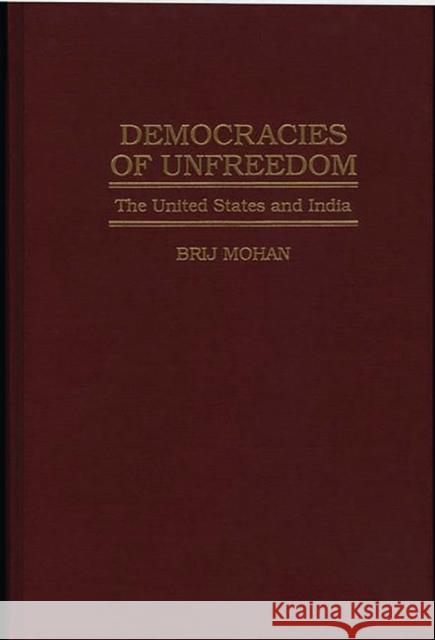Democracies of Unfreedom: The United States and India » książka
Democracies of Unfreedom: The United States and India
ISBN-13: 9780275949945 / Angielski / Twarda / 1996 / 192 str.
The United States and India--the most powerful and the most populous constitutional democracies, respectively--have more in common than is apparent from a casual comparison of life in, say, Agra and Omaha. While the material circumstances of an average family in the one city may be dramatically different from the circumstances of its counterpart in the other, the political cultures that protect and sometimes encroach upon the freedoms of each family are in many ways remarkably similar. The arrogant ambitions of one of Agra's representatives in New Delhi can likely find a match in the designs of one of Omaha's legislators in Washington, D.C. So, too, could we expect to find sincere concern for their constituents in the hearts of other political figures on Capitol Hill and in the Subcontinent. In this probing critical comparison of political culture in the United States and India, Professor Brij Mohan argues that much can be learned about the parochial roots and global expansion of representative government by studying both the successes and the failures--both the promise and disappointment--of these two great experiments in constitutional democracy.











